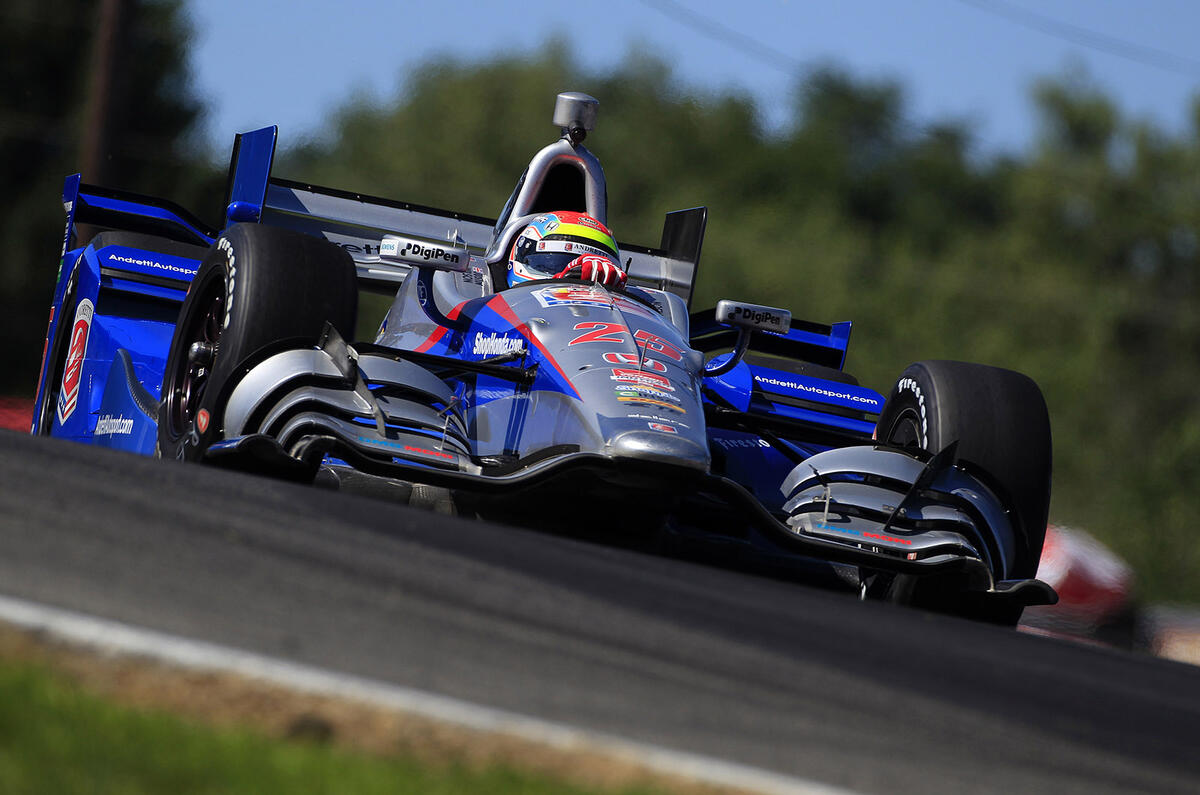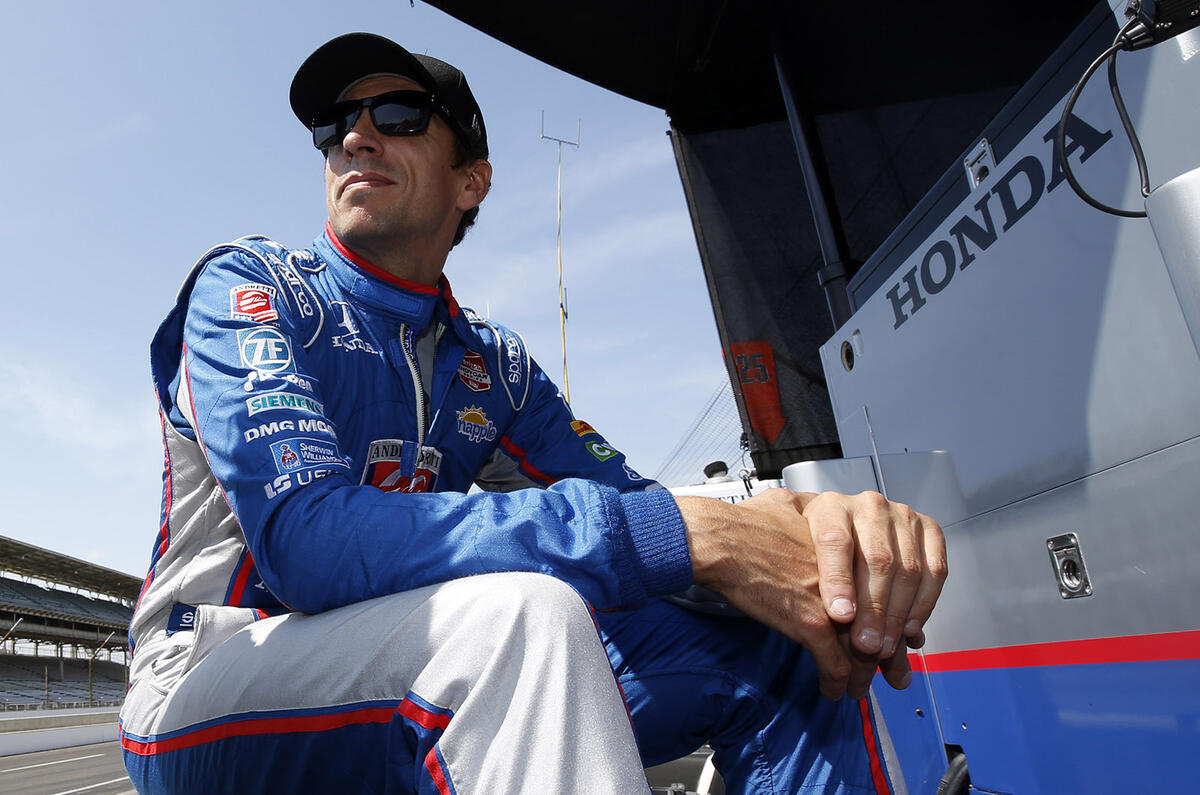My fondest memories of Justin Wilson, the 37-year-old Yorkshire-born Indycar driver who died yesterday as a result of severe head injuries in a freak accident at Pocono Raceway, have nothing to do with his career in big-time single-seater racing, although that was his chosen form of the sport. They speak volumes for the bloke himself, however.
We were in a Ford Mustang at Brands Hatch seven or eight years ago, Justin driving, lapping with a bunch of track-day specialists in Caterhams and race-prepped Lotus Elises. He knew the circuit backwards having been an instructor there in his formative years and was obviously well used to much more powerful cars. So he was having a good time giving it everything.
We must have done eight or 10 laps in the big beast, regularly creaming Caterhams that should have been much faster, the pair of us grinning at the sheer fun of it. I can still see the mirrored shock in the eyes of one 340R driver in front as he spotted our swaying, bellowing Ford for the first time, bearing down on his rear at speeds and in attitudes he simply hadn’t seen before.
For all our tyre-smoking velocity, Wilson never seemed to do anything more than guide the big beast with casual, deft movements, and I hardly felt his gearchanges. It was a consummate demonstration of skill, but Justin laughed it off as if anyone could do it. But then, he was about the nicest guy you could meet: friendly, gentle, amusing and modest. He even sustained the grin while I took the Mustang’s wheel for a few laps.
Half an hour earlier Wilson has been the star performer at the annual general meeting of shareholders in Justin Wilson plc, the company he and his mentor Jonathan Palmer formed in 2002 — and listed on the London Stock Exchange — as a means of raising the funds Justin needed to buy a Minardi F1 drive for 2003. For a decade afterward he’d meet investors annually at Brands — I was one of 900 who chipped in — and if you were very lucky he’d take you for a few laps. It must have been a chore, but he made it fun.
All successful racing drivers need deep reserves of aggression and ego, but no-one disguised them better in normal life than Justin. Yet there was no disguising his determination. He always had to struggle against two problems: the lack of funds and a 6ft 4in beanpole frame difficult to accommodate in single-seat racing cars. After an all-arms-and-legs start in karting, he progressed through Formula Vauxhall to become the first-ever Formula Palmer Audi champion, and then he beat Mark Webber to the 2001 F3000 championship, winning by a record points margin.
The natural step was F1, but Justin didn’t have much luck in the solitary season we helped to finance. Unable to take a mid-2002 opportunity at Minardi because he couldn’t fit the car, Wilson did get into a revised Minardi for 2003, scoring an 11th place before transferring to the short-lived Jaguar team for the season’s last five races. His best-ever F1 race was his second-last in the US, where he came eighth and scored his one and only championship point. The following year Jaguar needed paying drivers and Christian Klien bought Justin’s seat from under him.













Add your comment